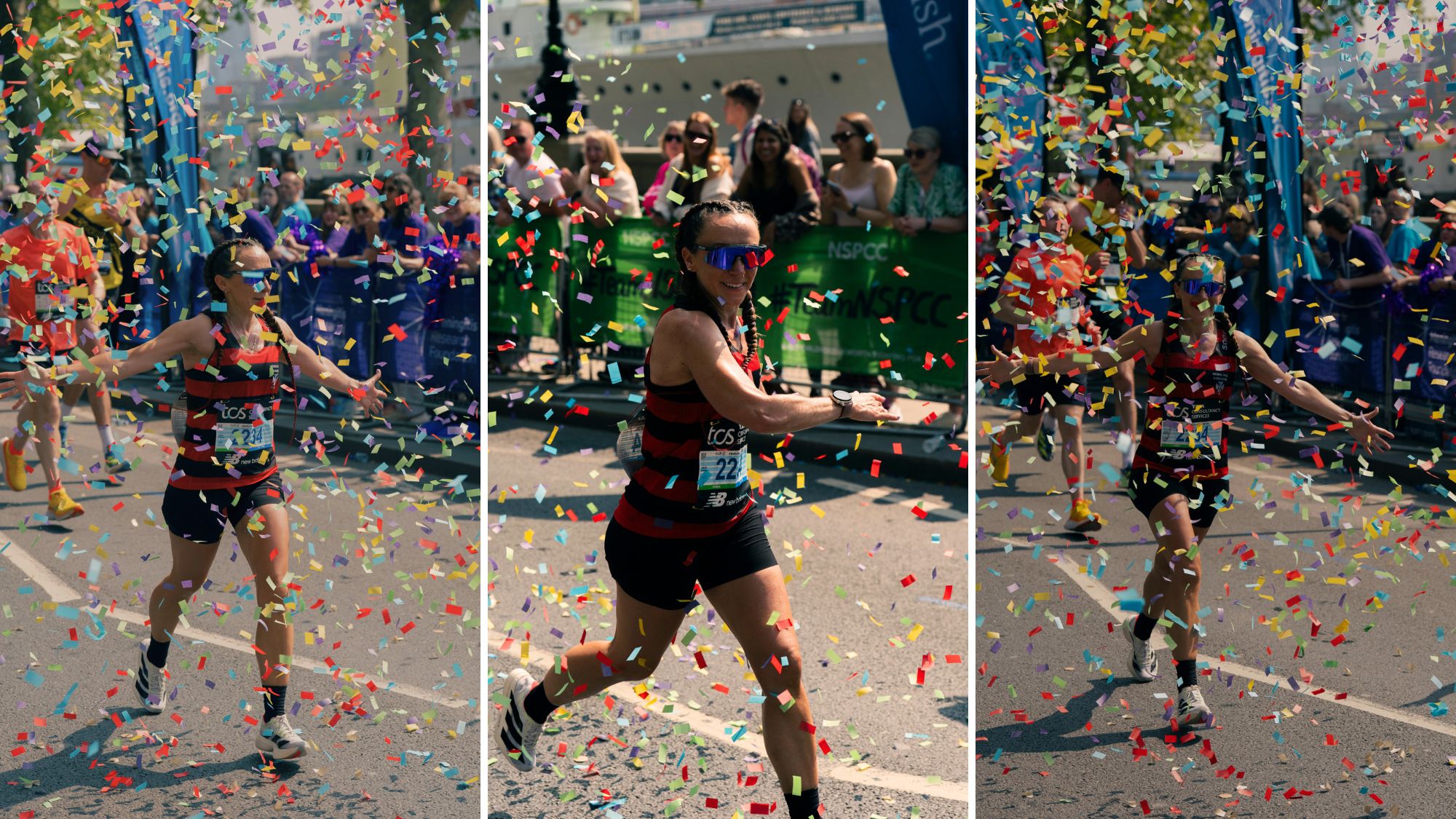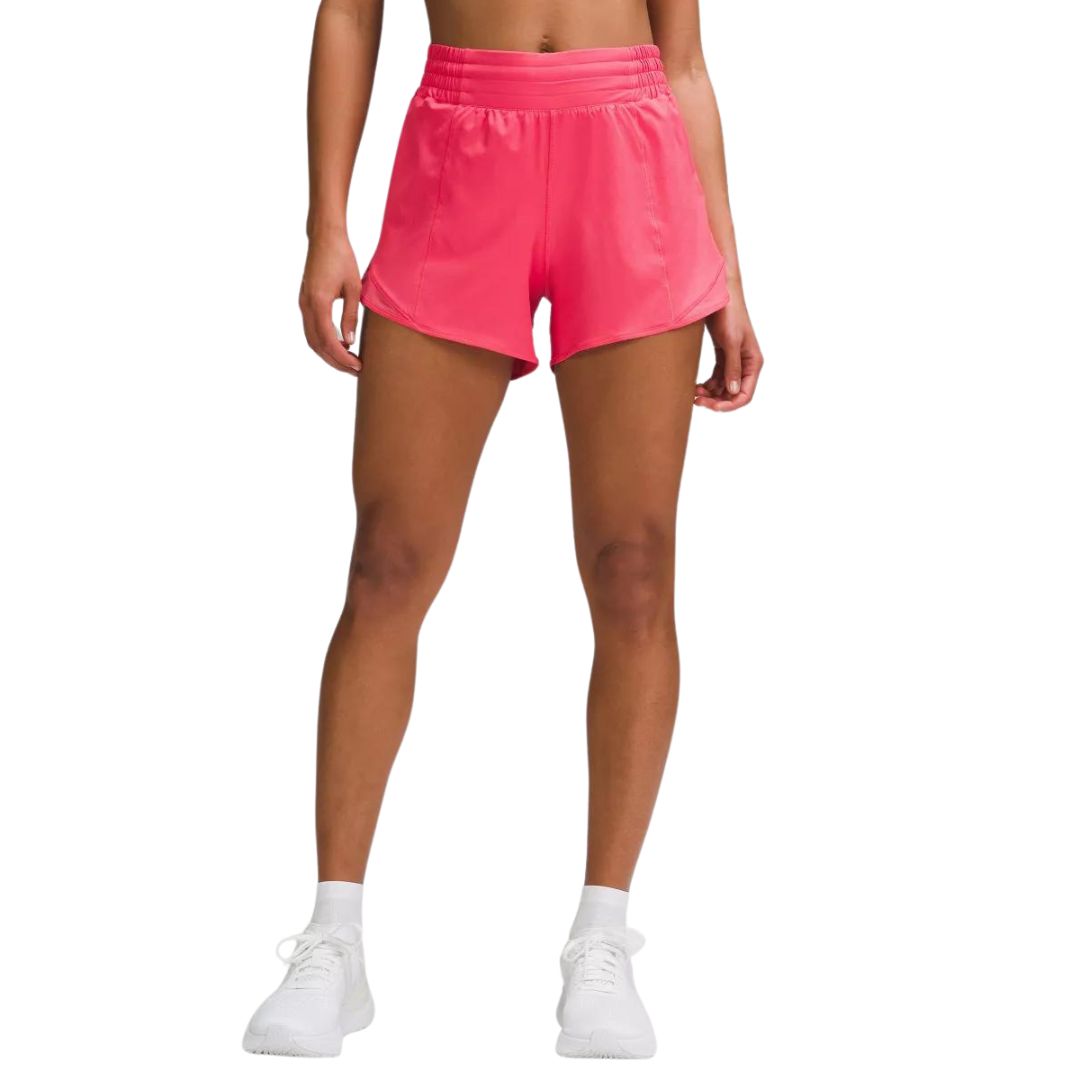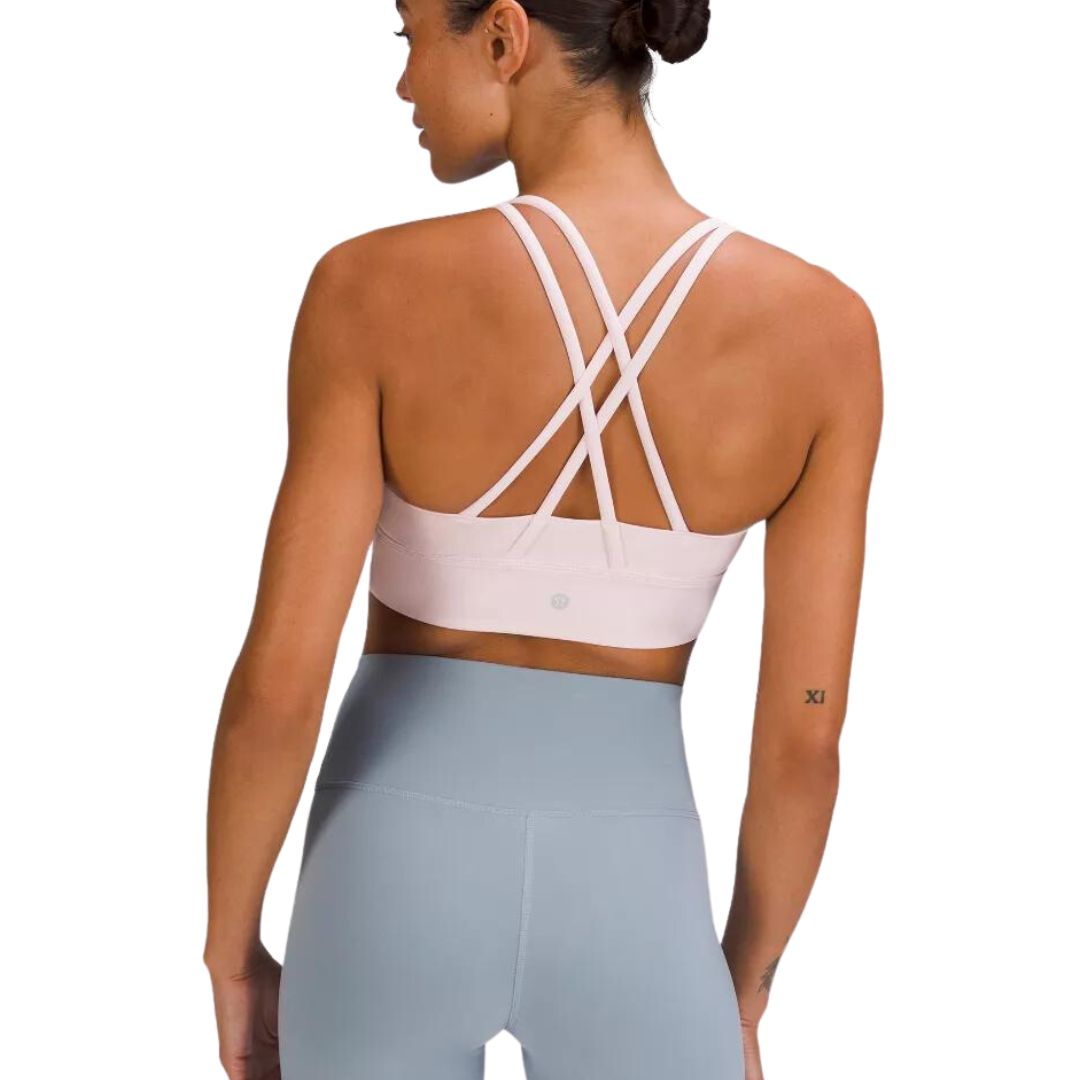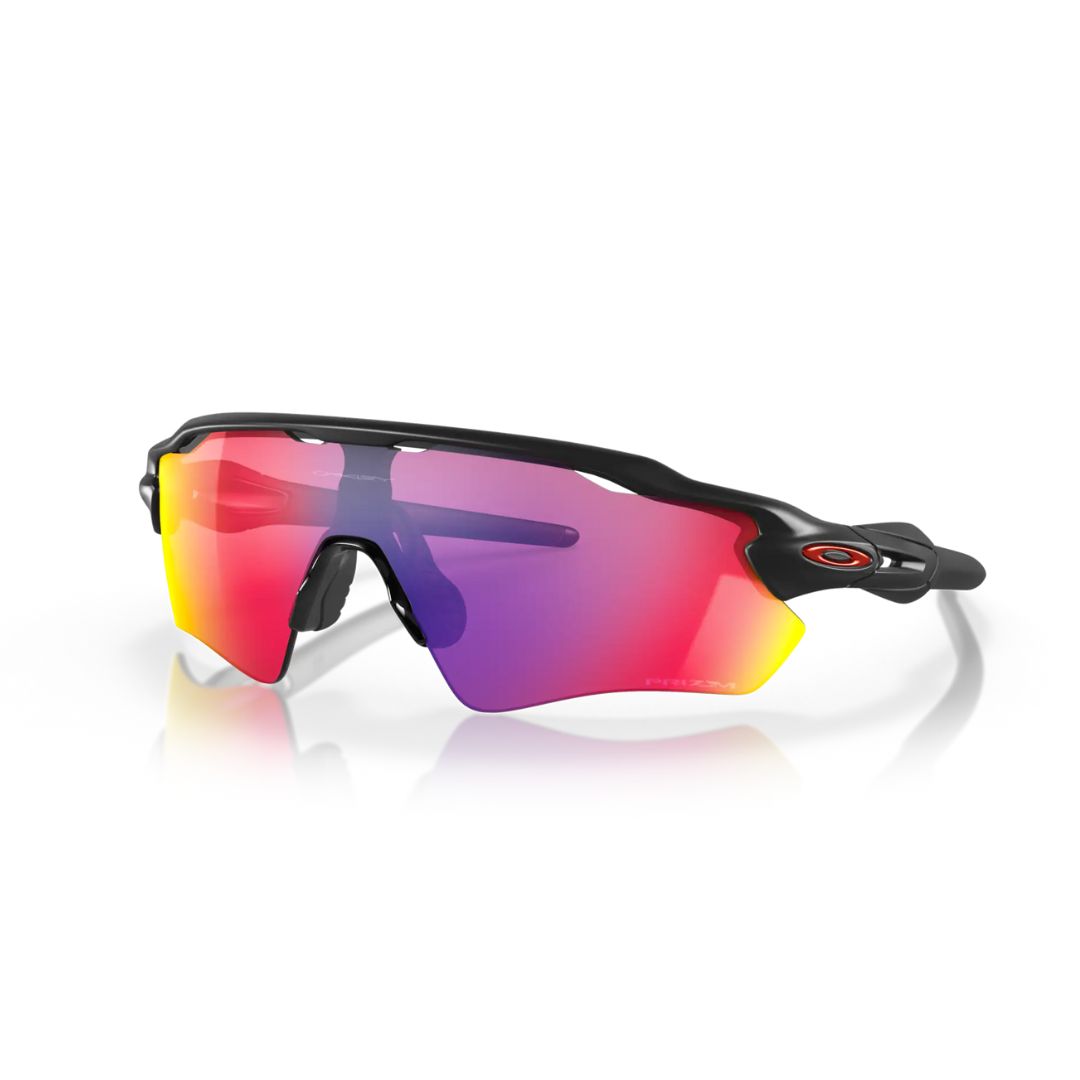
Celebrity news, beauty, fashion advice, and fascinating features, delivered straight to your inbox!
You are now subscribed
Your newsletter sign-up was successful
The atmosphere in London this weekend was nothing short of electric. More runners than ever before completed yesterday's marathon, athlete Eilish McColgan set a new Scottish marathon best for the marathon in a time of 2:24:25, and Ethiopia's Tigst Assefa stormed her way to first place, breaking the women's-only marathon world record in a staggeringly fast time of 2:15:50.
And what a race it was. 56,640 runners battled soaring temperatures and the dreaded wall to make it to the iconic Mall finish line, beating the New York Marathon's existing record for the highest number of marathon finishers at 55,646.
Speaking of her accomplishment after the race, the champion said: "When I crossed the line, I just felt extreme happiness. I was very, very happy to win the race. I really wanted to win today, and after Paris, where I finished second again, I really have trained hard.”
While her achievement is undoubtedly inspiring, running a marathon is no mean feat. You'll end up with black toenails, DOMs for days, and a completely incomparable sense of pride, achievement and sheer elation. It's like nothing else - and yes, I should know, as I've run nine myself.
That said, I'm passionate about the fact that absolutely anyone can conquer the marathon distance in their lifetime - if they put their mind to it and bank the appropriate training, of course.
So, where to start? As a Senior Health Editor who runs marathons for fun - including the London Marathon three times - I can confidently say this will depend on your fitness level. If you workout four times a week and run semi-regularly as is, you'll want to try a different plan than, say, someone who's never run before.
But there are some universal training tips for a marathon that apply to everyone. We've asked run coach and athlete Johnny Mellor, run coach Steve Vernon, and FIIT personal trainer Sean Kazab to share the fifteen most important things you need to know pre-running your first race - including what not to do come race day (we're looking at you, brand new running trainers or accidental alarm snooze).
Celebrity news, beauty, fashion advice, and fascinating features, delivered straight to your inbox!
Don't miss our guides to the many benefits of running, 10km training tips, how to run further and how to run faster, while you're here. New to the sport? We've got the ultimate running advice for beginners' bible here. Or, if you're keen to shop editor-approved kit, don't skip our guides to the best race day outfits, chic micro shorts, the best running accessories, and the best running trainers.
Training tips for a marathon: 15 need-to-knows
If you're thinking about signing up for a marathon or are currently training for your first one, you're likely feeling a combination of excitement, nerves, and what runners call "maranoia." This in layman's terms translates to marathon paranoia, aka a slight nagging feeling that you haven't quite done enough in training.
Fear not, though - the below tips will help you feel confident and calm in the build-up to your race.
In training
1. First things first: pick a plan (and stick to it)
Want to run a marathon? First, pick a training plan. There are lots of great free options on the likes of Runners World, and apps like Runna and Coopah are having a viral moment thanks to their run coach and AI-tailored training plans.
Most plans will span twelve, sixteen or 20 weeks, depending on your current fitness levels, and will all have the same aim: to gradually build your body up to be able to tackle the distance come the big day.
As Kazab points out, research has shown those who have a specific workout plan are significantly more likely to achieve their goals. Similar to smashing your weekly home workouts or gym classes, a running training plan ensures you're being expertly guided through your training and not over or under doing it. Plus, as the trainer emphasises, having a solid plan in place takes decision-making out of the process so all you have to focus on is each session.
There are many training plans out there claiming to be the best but realistically, the best plan is the one that you can stick to and that fits in with your lifestyle.
Try this: when picking out a plan, look at the number of sessions per week and make sure it's something you know you can stick to. Less is sometimes more.
2. Figure out your goal
Knowing how to run for longer can feel daunting to begin with, which is why this is one of the most important tips in this round-up.
As Kazab says, without a goal, you can’t score. Whether yours is to finish - that's a feat in itself - or aim for a certain time - also impressive - remember not to compare yourself to others. This is your marathon, and your journey.
"Having clear specific, measurable and deliberate goals will help you develop a clear action plan," he explains.
Try this: Whatever your goal is, write it down and make it clear.
3. Don't do too much, too soon
FYI, a lot of running injuries are caused by doing too much, too soon.
Try this: Remember to pace yourself. Gradually build your running up from whatever fitness base you're at, and make sure to pay attention to the all-important running tips for beginners, for example, not ramping your mileage up too soon or running all of your miles at a hard pace (recovery runs are essential for recovery, hence the name).
As long as you've ticked off the majority of your miles and followed (most of) your plan, you'll have done enough. Marathon training is a fine balance between too little and too much - yes, rest is as important as training. Plus, trusting in your training is often as important as the training itself.
4. Remember to strength train, too
You might assume that training for a marathon simply means running loads, right?
Wrong. "Weight training is something endurance runners often neglect, but its importance for both injury prevention, as well as improvements in performance, has been proven time and time again," explains Kazab.
Try this: Add in one to two full body strength training sessions a week - the workouts on Fiit’s Marathon Prep Collection are specifically designed with runners in mind.
Read how I got on trying strength training for running, here (spoiler alert: I now credit weight lifting to staying injury-free for the best part of five years despite countless marathons and ultramarathons being run during that period).
5. Prioritise sleep
Sounds simple, not so much in reality. "A consistent sleep routine is one of the most underrated methods of improving your recovery," explains Kazab.
Try this: Ensure you have a good night's sleep before all of your runs, where possible. Growth hormones released in your sleep are key for tissue repair and recovery, so getting a consistent seven to eight hours in bed will be beneficial. Wondering how you can get to sleep? Our guide to insomnia treatment is here to help. As a Health Editor, I swear by my sunrise alarm clock for optimum shut-eye.
The day before the race
6. Plan in advance
One thing to keep worries at bay? Have a clear race plan, and have a clear post-race plan, too, advises Mellor.
Try this: "As well as having a race plan in place, do make sure you've made a plan to meet friends and family after the race," he advises. "The finish line is often very congested - knowing what set place your loved ones will be at after the marathon will help you push through the harder miles."
Investing in a wellness planner to jot down your plan or trying journaling for anxiety may also help ease race day nerves.
7. Check your kit
Again, sounds obvious, but you'd be surprised how many people end up scrambling around for safety pins or Vaseline come race day. Running shoes? Check. Gym leggings? Check.
Try this: "The day before the race, do a final kit check," shares Mellor. "Pin your number to your vest and make sure you’ve not forgotten anything you might need on race day."
A basic (but not extensive) list might include:
- A sports bra
- Running shorts or gym leggings
- A running belt
- A top
- A running watch or fitness tracker
- Socks
- Running trainers
- Gels
- Vaseline
- Pins
- Headphones
- A layer to keep you warm at the start line.
Mellor likes to make notes on his phone in the week before the marathon to make sure he's prepared.
8. Prepare yourself mentally for the tough bits
Tough patches are inevitable in a marathon - as anyone who ran in yesterday's heat will appreciate. That said, how you tackle them is up to you, and our guide to reframing negative thoughts might help.
"These tough bits can sometimes come earlier than you think, so it's good to think about how you will overcome them with positive self talk and reminding yourself of all the hard work and training you have put in," shares Vernon.
Try this: Have a clear action plan for how you're going to overcome negative thoughts and emotions mid-race. "There is no need to panic if you have done the work, so simply slow down and allow it to pass," advises Vernon.
9. Break down the mileage
This one's really key. "The overall distance can be daunting, so break it down with process goals," recommends Vernon.
Try this: Whether you'll aim for distance markers - ten miles, fifteen, twenty, twenty five and then the finish - or instead focus on landmarks or where your friends and family cheering along is up to you. "You can reward yourself by having some of your favourite fuel or listening to a motivational song - anything that gives you a boost", advises Vernon.
10. Sort your fueling
On the topic of fueling - made sure you've worked out what works for you prior to race day. You'll need to fuel little and often, explains Mellor - as a general rule of thumb, you'll need at least 30g of carbs per hour minimum.
Try this: "If you have eaten and hydrated well in the 48 hours before, your glycogen stores will be optimised, but you will still need to drink and fuel along the way," he explains. Try to sip at drinks at regular intervals and take on some fuel either in the form of a sports drink, gel or sweets at least once every hour.
Our expert-led explainers on what to eat after a workout and the best protein powders might come in handy here.
11. Eat simple foods
On the nutrition topic, don't eat anything too different in the week leading up to race day. "The final week before the marathon isn’t the time to make changes to your diet," shares Mellor.
Try this: Instead, eat foods that you know sit well with you. Prep your fridge (or bag) with porridge pots and basic carbs that you know work for you.
On race day
12. Give yourself enough time
You don't want to be scrambling around pre-race, as we've touched on, so make sure you're prepared.
Try this: "Wake up in plenty of time on race day and give yourself sufficient time to go to the bathroom, eat and get to the start line so you’re not rushing," advises Mellor.
Also note here: it's normal not to sleep well the night before the race. You'll be nervous - this is bound to happen.
13. Don't try anything new
Again, you'll have heard it before but would be amazed at how many people do it. "Don’t wear anything new in the marathon - this includes running shoes, gym leggings and any other workout kit," explains Mellor.
Try this: Opt for trainers you've worn before and broken in, advises the athlete. "Break any new kit in for a couple of weeks before racing in them," he advises. "I like to do a final dress rehearsal two weeks out, which includes running in the kit and trainers I plan wearing on race morning."
14. Remember to take the first half of the race steady
It’s likely you will have a goal in mind based on your training - make sure you don't set off too fast, as you'll come to regret it in the second half of the race, shares Vernon.
Try this: "Run steady for the first half - it's easy to get carried away with the adrenaline from the crowds and hearing your family and friends on the road, so be smart," he adds.
15. And lastly... enjoy
Because, ultimately, that's what it's about, right? "Make sure you enjoy the race," stresses Vernon. "We all know the marathon is hard for all abilities, but you can still enjoy it by soaking in the incredible atmosphere along the way and sharing the journey with fellow competitors out on the road," he says.
Try this: Smile when you start to suffer. If it works for marathon legend Eliud Kipchoge, then it's worth trying, says Vernon.
This article was first written in 2024 and has since been updated.
Shop MC UK's go-to running essentials now:
What is a marathon?
Simply put, a long-distance running race, of 26.2 miles or 42km. "It's over eight Parkruns or 105.5 laps of a running track," explains Vernon. "Either way, it’s a long way!"
Is it normal to feel nervous before a marathon?
Short answer? Yes, explains Mellor.
"It’s perfectly normal to feel nervous pre-race and it’s worth remembering thousands of runners are going through exactly the same," he shares. "Nerves are good - they show you care. Remind yourself of the tough sessions you worked through and trust that you've given it your best shot. It's all you can do," he concludes.

Ally is Marie Claire UK's Senior Health and Sustainability Editor, a well-regarded wellness expert, ten-time marathoner, and Boston Qualifying runner.
Utilising her impressive skillset and exceptional quality of writing, she pens investigative, review and first-person pieces that consistently demonstrate flair and originality.
As well as writing, Ally manages a team of freelancers, oversees all commissioning and strategy for her pillars, and spearheads the brand's annual Women in Sport covers, interviewing and shooting the likes of Mary Earps, Millie Bright, and Ilona Maher. Shortlisted for three BSMEs and winning one in 2022, Ally lives and breathes her verticals: her eye for a story and connections within the wellness sphere are unrivalled. Follow Ally on Instagram for more.



